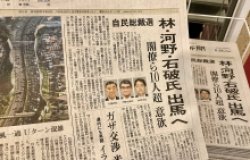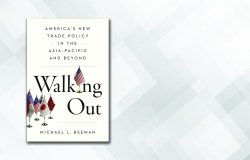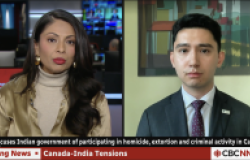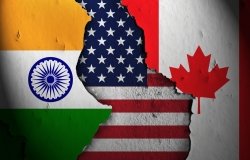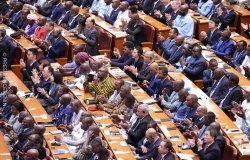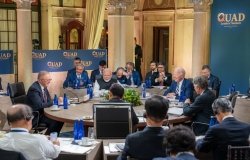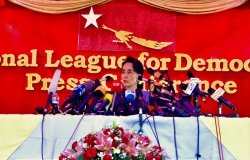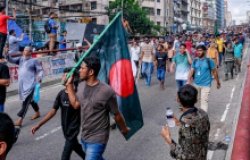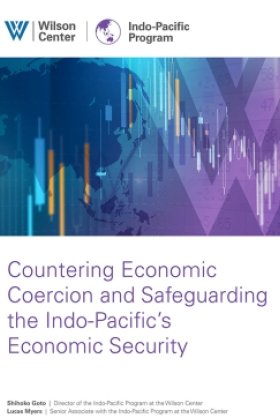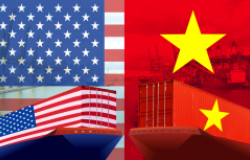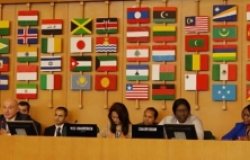Taiwan's Strategy to Retain Diplomatic Space
Dennis V. Hickey, Missouri State University; He Li, Merrimack College; Kwei-Bo Huang, National Chengchi University (Taiwan); Xin Xu, Cornell University
Overview
In May 2008, Taiwan's president Ma Ying-Jeou proposed a diplomatic truce with China; each agreed to abandon its practice of "buying" diplomatic recognition from small, impoverished countries. Through this settlement, will Taiwan be able to maintain and expand its international space? Four Taiwan experts, speaking at a December 8 Asia Program event, concurred that in spite of this development, the Beijing-Taipei diplomatic rivalry will continue.
Dennis Hickey of Missouri State University elaborated on the domestic and foreign challenges faced by Ma. At home, Ma needs to maintain political stability. Playing up ethnic divisions and tensions, the policies of Ma's predecessor, Chen Shui-Bien, divided the country, so now Ma must reconcile the two sides. He has demonstrated this balance by appointing a pro-independence-minded politician as head of the country's Mainland Affairs Council. Regarding Taiwan's future status—de jure independence or reunification with China—Ma remains neutral so that he can rebuild economic ties with Beijing. For Hickey, the truce is a positive development for Taipei, Beijing and even Washington. However, Hickey cautioned that over time, some policymakers in Washington may grow suspicious of the Beijing-Taipei rapprochement, and furthermore, U.S. arms sales to Taiwan can potentially disrupt the truce.
According to He Li, professor of political science at Merrimack College, the diplomatic rivalry between China and Taiwan over Latin America underscores Latin America's geostrategic value. The proximity of small Central American nations to the United States makes them important allies for Taiwan. To emphasize this point, Ma made his first overseas visits to Paraguay and the Dominican Republic shortly after his inauguration. Li noted that maintaining relations with 12 Central and South American allies is "cost-efficient" for Taiwan. The millions of dollars that have been spent through "checkbook diplomacy" have given China the advantage. Strategically, even though China regards Latin America as a region of low priority, it still invests heavily in the region through foreign direct investments (FDI). China currently has 10 times the amount of trade with Latin America that Taiwan does and is allied with almost half the Latin American and Caribbean states. The diplomatic truce, exercised as part of Ma's "flexible diplomacy," can curtail the damage incurred by Chen's "torching diplomacy" (getting China's diplomatic allies to defect to Taiwan at any cost), but cannot keep small states from China's reach.
Kwei-Bo Huang, professor of political science at Taiwan's National Chengchi University, explained that Taiwan's participation in inter-governmental organizations (IGOs) gives the country a sense of equality and dignity to assert itself on the world stage. IGOs also offer Taiwan opportunities to promote cross-strait dialogue. Taiwan is currently a member of 27 IGOs and an observer in 21, with a focus on obtaining full membership in the "Big Three"—the World Trade Organization (WTO), the Asia-Pacific Economic Cooperation forum (APEC), and the Asian Development Bank (ADB). Taiwan's identity politics drives its pursuit of IGO membership. Taiwanese leaders like Lee Teng-Hui and Chen drew attention to Taiwan's membership in IGOs to win election votes. Comparing the confrontational approaches of Lee and Chen to Ma's low-key "diplomatic" approach, Huang concluded that the international community will be more receptive to Ma's policies, encouraging China to give Taiwan more international space that will, in turn, block Taiwan's Democratic Progressive Party (DPP) from returning to power.
Commenting on the Beijing-Taipei diplomatic rivalry in Oceania, a region of minor interest to Washington, Xin Xu of Cornell University asserted that underdevelopment and political instability make Oceanic states susceptible to dollar (or checkbook) diplomacy. Taipei and Beijing now have an almost equal distribution of allies in this region, with Beijing exerting a stronger influence due to its links with Papua New Guinea and Australia, the region's dominant powers. Taiwan values its Oceanic ties. These small states can help Taiwan raise its visibility in international organizations like the United Nations. Nonetheless, Taiwan may be losing its influence. Scandals in Papua New Guinea and the Solomon Islands exposing Taiwan's financial support behind political candidates have plagued Taipei's image in Oceania's media. Furthermore, Taiwan cannot compete with large Chinese investments in the region's key sectors of trade, investment, tourism, and multilateral mechanisms. On the truce, Xu remains "cautiously optimistic." Eventually, Xu judged, Taiwan must be recognized as a political entity. Beijing's consent to allow Taiwan's participation in the May 2009 World Health Assembly will be a "litmus test" of whether the truce benefits Taiwan.
Drafted by Susan Lee Levenstein, Asia Program Assistant
Robert M. Hathaway, Director, Asia Program, Ph: (202) 691-4020
Hosted By

Indo-Pacific Program
The Indo-Pacific Program promotes policy debate and intellectual discussions on US interests in the Asia-Pacific as well as political, economic, security, and social issues relating to the world’s most populous and economically dynamic region. Read more
Thank you for your interest in this event. Please send any feedback or questions to our Events staff.

